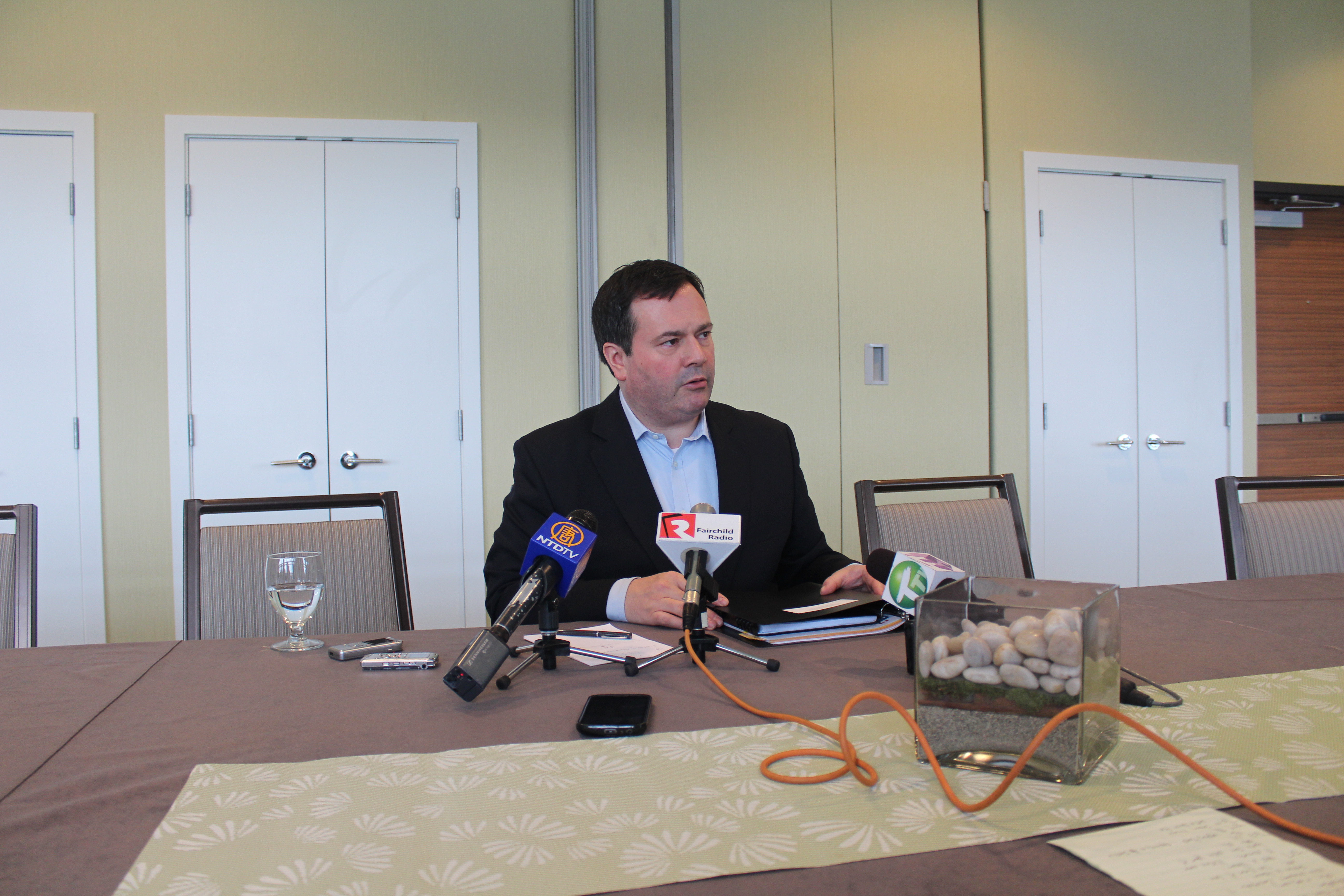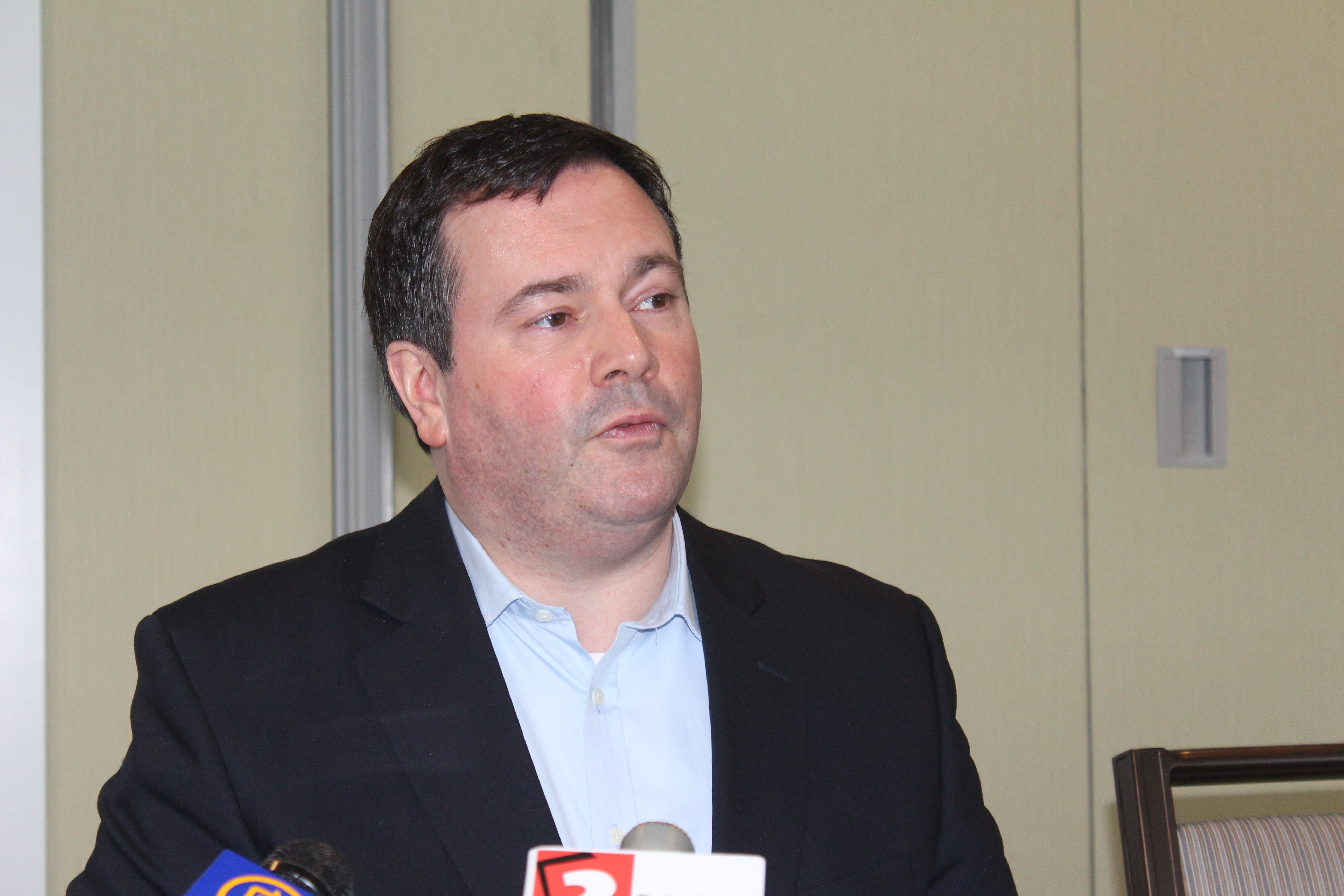Canada News
Canada is not a hotel: Kenney
Richmond, B.C.—Mr. Jason Kenney, Minister of Employment and Development and Minister of Multiculturalism, came to Richmond to discuss the budget unveiled by Minister Jim Flaherty as Economic Action Plan 2014 but was—understandably—bombarded by questions on the spate of changes on the immigration front.
Indeed, media representatives of three of the largest and fastest growing immigrant population in Canada—the Chinese, South Asians and Filipinos—met with the minister at a roundtable to seek answers to questions that are making their groups very concerned: Bill C-24, the Strengthening Canadian Citizenship Act and what it would spell for their groups in the near future.
The proposed law is the first comprehensive reform to the Citizenship Act since 1977.
Some of the pressing questions of the reporters included the longer residency requirement, the cancellation of the immigrant investor program and the new “expression of interest” system.
Longer residency requirement
“Canada is not a hotel. Our passport is not a document of convenience. It’s not a political insurance policy. it implies mutual obligations. it implies being committed to this country in longer terms,” said Mr. Kenney.
Most developed countries like Australia and the UK actually require five, six, seven years of residency, according to the minister.
Thus, under the new law, to make sure that Canada will have citizens that have formed “meaningful attachments” to the country, immigrants seeking citizenship must reside in Canada for four out of the previous six years, an increase of one year from the old law, “[E]specially given the number of people who in the past dodged around the rules,” the minister explained.
The RCMP has investigated residency fraud in the past few years and found more than 10,000 cases of people who faked proof of their residency.
People also showed up at citizenship ceremonies with their suitcases packed, ready to go back to their country of origin.
“All of that will end with the exit-entry information system that we’re putting in place by the end of this year,” Mr. Kenney said.
“And I hope with the new requirements, applicants for citizenship actually file tax returns. No longer will we accept the notion that someone can be a permanent resident for citizenship applications but at the same time be a non-resident for tax purposes,” he says.
Mr. Kenney clarified, however, that the longer residency requirement will not apply to people who are already permanent residents in Canada. “They will be grandfathered under the proposed Strengthening Citizenship Act. It will only be for newcomers who arrive after that act is adopted.”
“I don’t think an extra 12 months is unreasonable to ask,” said the minister.
Immigration at a higher price point
“Does the scrapping of the immigrant investor program target rich Chinese immigrants specifically,” asked one reporter point-blank.
The minister answered, “Frankly, we should have suspended this program many years ago and if I have one regret as immigration minister is that I did not have done this before.”
According to Citizenship and Immigration Canada, data for the past 20 years indicated that the average investor-immigrant paid $200,000 less in taxes than a skilled federal worker, and almost $100,000 less than a live-in caregiver.
“We were not getting any economic advantages from it,” said the minister.
However, a replacement program is in the works.
“One pilot project Minister Alexander is developing is having economic immigrants at a higher price point, making [the loan] at risk, and having actual investment to support some start-up business that can lead to innovation in Canada and create real jobs. Never again will investors in Canada get a fully guaranteed, no-risk loan. If they want to enjoy the benefits of living in Canada, they have to live here and they want to become citizens, and have a real, at risk investment at an innovative sector,” Mr. Kenney explained.
Reeling the employers in
The minister also explained that the government will try to get the support and cooperation of employers and provincial governments through the “expression of interest” pool to attract those individuals whose skills Canada most need.
This model follows the programs in other developed countries that are accepting immigrants.
“[Their] employers are more involved in choosing their immigrants. In Canada, some of the [new immigrants] go to big cities, can’t get their credentials recognized, they don’t have Canadian experience. They get underemployed, they work in survival jobs, their skills atrophy and they get frustrated. That is too often the experience here in Canada,” said Mr. Kenney.
Immigrants in Australia, for example, earn on average far more than the immigrants in Canada.
Through the changes, it is hoped that the value of Canadian citizenship will be protected, while creating a faster and more efficient process for those applying to get it. It is also hoped that with the new laws, those immigrating to Canada will no longer be at the mercy of socio-economic barriers that are preventing them—and Canada—from moving forward.























